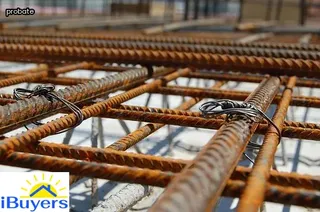The probate process in Texas involves the transfer of ownership of a deceased person's estate to their beneficiaries. It is important to understand the legal requirements and regulations surrounding this process before attempting to purchase real estate in Texas through probate.
In general, an executor or administrator is appointed by the court to oversee the distribution of assets, which includes real estate. The executor must file a petition in court, provide notice to any interested parties, and have debts paid off before the property can be distributed.
Once all debts have been settled, the executor may distribute the assets according to state law or as directed by the will of the deceased person. When purchasing a house through probate in Texas, it is important to understand that title insurance may not cover certain claims related to estates such as creditor's claims, liens, or other encumbrances.
Therefore, careful review and due diligence is necessary prior to purchasing a home from an estate sale or auction. Additionally, closing costs associated with probate sales are typically higher than those for non-probate sales due to additional paperwork and administrative costs.

Executing a Muniment of Title Probate in Texas is an important step when buying a house through probate. It involves the transfer of title from the deceased to the buyer in order to finalize the purchase.
In Texas, this process requires an application to be filed with the court, which must include a copy of the death certificate and a list of beneficiaries entitled to inherit under the will or other estate planning documents. The court will then review the application and issue an Order for Muniment of Title if approved.
This document serves as evidence that all assets have been distributed according to the will and that legal title has been transferred from the deceased to any buyers involved in probate real estate transactions. Before executing a Muniment of Title Probate, it is important for buyers to understand their rights and responsibilities as well as any potential tax implications in order to ensure a successful real estate investment.
When an individual inherits a house through probate in Texas, they are responsible for taking care of it until the estate is settled. This means they must be aware of all the responsibilities that come with being a homeowner, such as any maintenance and upkeep of the property.
They will also be responsible for paying any property taxes or mortgage payments associated with the home that was inherited. Furthermore, they may need to contact local authorities to get permission to make changes to the house or even have it sold during probate.
It is important to note that making any changes without obtaining proper approval could result in a potential lawsuit or other legal problems. Finally, if there is a dispute over who is entitled to inherit the house, an attorney can provide legal guidance on how to resolve any issues and protect your rights as an inheritor.
By understanding these responsibilities and consulting with knowledgeable professionals when necessary, you can ensure a smooth transition when buying an inherited house in Texas through probate.

Inheriting a home can be a complex process, especially if the house you've inherited is located in Texas. If you choose to sell the house without going through probate, it's important to understand the real estate market in Texas and the different options available for selling an inherited house.
Before you put your home on the market, it's essential to determine how much equity is in the home, research comparable properties to set a competitive asking price, and find out if there are any liens or restrictions that must be addressed before selling. Once you have done this research and feel confident with the sale price of your property, you'll need to make sure that all paperwork is in order and that all parties involved are aware of their roles throughout the transaction.
From there, you'll need to find a reputable real estate agent who has experience selling inherited homes and help guide you through each step of the selling process. With careful planning and research, it's possible to successfully sell an inherited house without going through probate in Texas.
Understanding the laws that govern real estate during probate is important for anyone looking to buy a house in Texas. Knowing the rules and regulations allows buyers to make informed decisions about their investments.
The probate process is complex, but there are steps that can be taken to ensure that buyers are compliant with all applicable laws. Purchasers should know the timeline of the probate process, including when a court order is required and when an executor can take action without one.
Additionally, it’s important to understand the rights of any heirs involved in the situation, as well as how those rights may affect any decisions made during the sale. Buyers should also familiarize themselves with all of the paperwork associated with buying a home through probate, such as deeds, title searches and closing documents.
With this knowledge in hand, investors can be sure they’re making wise decisions when buying a house in Texas through probate.

If an individual passes away without a will, the estate is subject to the laws of intestate succession. This means that the assets of the deceased will go to the next of kin, usually starting with spouses, children, and parents in order of precedence.
If there are any questions as to who should inherit what from the estate, or if there are multiple claimants, then it is best to seek legal advice. The court will distribute assets according to state laws based on family relationships and other criteria such as who has financial need.
It is also important to note that if there are no legal heirs available then the estate may pass over to the state.
When buying a house in Texas through probate, maintaining the home is an essential part of the process. Homeowners should take steps to ensure that their property remains in good condition while in probate.
This includes regular inspections and repairs, as well as taking preventive measures such as painting and resealing windows and doors. It is important to keep up with the lawn care, landscaping, and other outdoor features to maintain the home's value.
Additionally, homeowners should also consider safety measures such as installing security systems or motion-sensitive lighting. By taking these steps during the probate process, homeowners can ensure that their investment will remain valuable for years to come.

When a decedent's estate has gone through probate and the process of distributing assets is complete, the executor may decide to put the house up for sale. Before doing so, it is important to take a few steps to ensure that the sale goes smoothly.
First, it is essential to make sure that all outstanding debts associated with the property have been paid off or otherwise addressed. Additionally, if there are any liens or claims against the home they must be resolved.
It can also be helpful to review documents such as title deeds and surveys as well as local zoning ordinances in order to address any potential issues that could arise during a sale. Furthermore, it is important to make sure that any necessary repairs or renovations have been made in order to maximize the value of the home when listing it on the market.
Finally, hiring a real estate agent who has experience dealing with probate sales can be beneficial in helping navigate any legal complexities so that you get the best possible outcome from your real estate investment venture.
There are several costs associated with the probate process when buying a house in Texas. Depending on the estate, you may need to pay court fees, appraisal costs, and attorney’s fees.
Additionally, you may need to pay for title insurance which is an important step in protecting your purchase from any potential liens or claims against it. Other costs that may be incurred include administrative costs related to filing paperwork and obtaining a tax identification number for the property.
Many of these costs can be negotiated with the executor of the estate so it is highly recommended that buyers do their research before entering into any negotiations. Lastly, if you are able to obtain financing for your purchase, there will likely be closing costs associated with taking out a loan for your real estate investment.

When buying a house in Texas through probate, it is important to be aware of the different types of listings that are available. For-sale-by-owner (FSBO) properties are one option, as they can offer a more affordable way to purchase a home.
Additionally, bank-owned properties may also be available, which can be attractive for those looking for an investment opportunity. Another possibility is an auction listing, which can provide an excellent opportunity to acquire a property at a reduced price.
Finally, real estate agents can help buyers locate homes listed on the Multiple Listing Service (MLS), which is an invaluable source for finding potential real estate investments during probate. It is important to have a thorough understanding of all the options available when searching for a property in Texas so that buyers can make informed decisions and maximize their chances of success with their real estate investment.
When it comes to selling a home during or after the probate process, there are many questions that come up.
Probate can be a lengthy and complex process, so understanding the steps involved is essential for success.
Some of the most common questions include: Is it necessary to have an attorney on hand when selling a home in probate? What documents will be needed in order to finalize the sale? Can multiple heirs agree on terms for the sale? How do you negotiate with buyers if there are multiple heirs involved? What tax implications should be taken into consideration when selling a house through probate? Does a real estate agent need to be involved in the sale? These are all important questions that need to be addressed when entering into a real estate transaction during or after probate.
Understanding these issues is key in ensuring that everything goes as smoothly as possible.

Finding reliable resources for information about selling houses during or after probate can be a challenge in Texas. Fortunately, the Texas State Law Library provides a wealth of information on the topic, offering comprehensive guides and helpful tools to help potential real estate investors understand the process of buying a house through probate.
It is important to research all local laws and regulations to ensure you are complying with any relevant legislation before making an investment. The library also has resources to help you determine how much you should offer for a property, as well as various legal documents that need to be completed during the transaction.
Additionally, there are numerous articles and publications on topics such as wills and trusts, guardianship requirements, estate taxes, title insurance coverage and more. With thorough research and guidance from the Texas State Law Library, real estate investors can confidently navigate their way through the probate process when buying a house in Texas.
If you are looking to invest in real estate through probate in Texas, it is important to understand how to access the forms necessary for selling property through the Texas State Law Library. To do this, first visit the homepage of the library and search for relevant forms.
Once you’ve identified which forms are necessary, you can download them from the library website. The forms will vary depending on your specific situation and should be filled out completely before submitting them to the appropriate authorities.
If you need help understanding any of the language within these forms, consider consulting with a lawyer or an attorney who specializes in real estate law. Additionally, you may be able to find additional information regarding real estate investment opportunities through local resources such as newspapers or websites that specialize in real estate investing.
By taking the time to do research and become familiar with all of the documents needed when buying a house in Texas through probate, you can ensure that your real estate investment is successful.

When selling a property after probate ends in Texas, it's important to understand the tax implications involved. Real estate taxes apply to any transaction and are calculated based on the local tax rate.
In addition, capital gains taxes may apply depending on the difference between the sale price and the appraised value of the home. If there is a profit from the sale of a house acquired through probate, then you may also owe federal income tax on that profit.
It's important to consult with a qualified financial advisor or accountant to determine what taxes you will be responsible for paying when selling a house after probate ends.
If you are looking to sell your house and/or navigate the Texas probate system, it is important to identify who you can contact for assistance. Professional real estate agents in Texas are well-versed in understanding the nuances of selling a house through the probate process and can help guide you through each step.
Additionally, experienced attorneys familiar with the Texas probate system can provide valuable advice on how to navigate the legal aspects of selling a home in Texas. When selecting an attorney, look for one that specializes in real estate law and has extensive experience with dealing Probate Courts in Texas.
Furthermore, research local services that offer assistance with managing a decedent’s estate under probate law. These services may include court filing assistance, document preparation, inventory management and more.
Finally, don’t forget to reach out to family members or close friends who have recently gone through similar experiences; they may be able to offer insight on how they navigated the process successfully.

When selling a house through the probat system in Texas, it is important to consider the pros and cons of doing so before, during, and after the process. Working with a real estate agent can be beneficial as they can provide valuable insight into the market and aid in successfully navigating the complexities of the probat system.
It is also essential to know your rights as someone engaged in a probat property sale. Having an action plan that outlines steps to take is also necessary to ensure success, as well as maximizing returns from any sale.
Understanding the costs associated with selling a house before, during, or after probate can help guide an informed decision.
Yes, it is possible to sell a house while in probate in Texas. The process of selling a house through probate can be complicated and time-consuming, so it's important to understand the laws and regulations governing the sale of real estate in Texas.
Probate is generally required when the deceased leaves behind property that must be legally transferred or distributed to their heirs. In these cases, a court-appointed executor is responsible for transferring the assets from the estate according to the terms of the will or other legal document.
When it comes to selling real estate, an executor may choose to use a real estate agent or list the property on their own. However, there are certain rules and procedures that must be followed before any sale can take place.
For instance, all potential buyers must submit an offer in writing that includes a down payment and any applicable closing costs. Additionally, all offers must receive court approval before being accepted by the executor.
Finally, once approved by the court, both parties must then sign formal contracts outlining all details of the sale before any money changes hands. By understanding these rules and regulations governing real estate transactions in Texas through probate, investors can confidently purchase a home with peace of mind knowing they are following all applicable laws.

In Texas, the length of time a property can remain in probate depends on several factors. Generally speaking, it is not uncommon for a property to stay in probate for months or even years depending on the complexity of the case and how quickly paperwork is processed.
It is important to note that Texas has no set time limit for completing probate proceedings, so it is important to consult with an experienced real estate attorney who can help guide you through the process. In addition, there are certain restrictions when buying a house through probate in Texas that may affect how long the process takes.
For example, if there are multiple heirs involved, it could take longer to reach an agreement on selling the property than if there was just one heir. Furthermore, additional paperwork must be filed with the court when purchasing a home through probate in Texas which will add more time to the process.
Understanding these complexities and working closely with an experienced real estate attorney can help ensure that your purchase goes as smoothly as possible.
When a house goes into probate in Texas, it must pass through the court system before it can be sold. The executor of the estate is responsible for distributing assets and debts to the beneficiaries.
If there is no will, the court will appoint an administrator to manage the estate. Before a house can be put up for sale in probate, certain steps must be taken.
First, all creditors must be paid off and any outstanding taxes must be settled. Next, any remaining assets are distributed to heirs according to state law.
Finally, if there are no heirs or if they cannot agree on a sale price, the court may order that the property be sold at public auction or by private agreement with a real estate investor. Buying a house through probate in Texas can provide an excellent opportunity for investors who are willing to do their research and understand the legal process involved.
With careful attention to detail and consideration of potential risks and rewards, real estate investors can find great deals on houses in probate when they take advantage of this unique opportunity.
Yes, in Texas, a property must go through probate when the owner passes away. Probate is a legal process where the assets of an estate are distributed according to the terms of the deceased’s will.
When someone dies and leaves behind real estate in Texas, it must go through probate in order for it to be transferred to new owners. During this process, the executor of the estate will work with an attorney to identify all assets that are part of the estate and how they should be divided among heirs or beneficiaries.
The court will grant permission for the sale or transfer of any real estate owned by the deceased. This is important for anyone considering buying a house in Texas through probate as it allows them to make sure that all legal requirements have been met before investing in a property.
A comprehensive guide to real estate investment in Texas provides valuable information about what goes into purchasing a home through probate and how to best manage your investment.